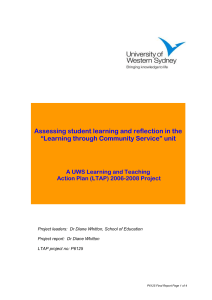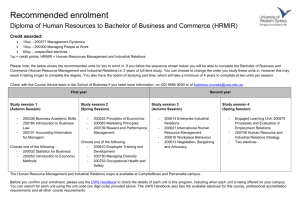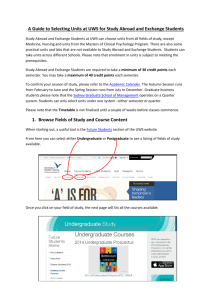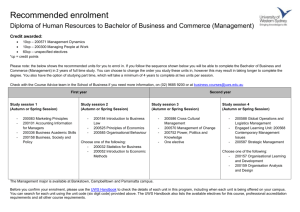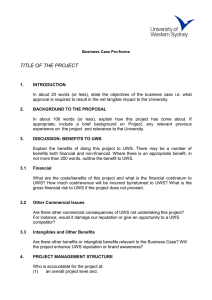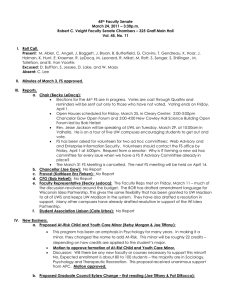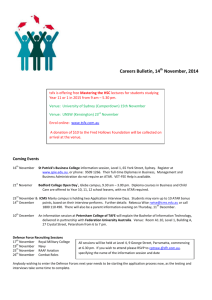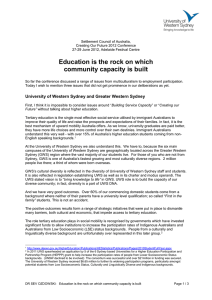Grading Philosophy (from Ryan Wepler)
advertisement
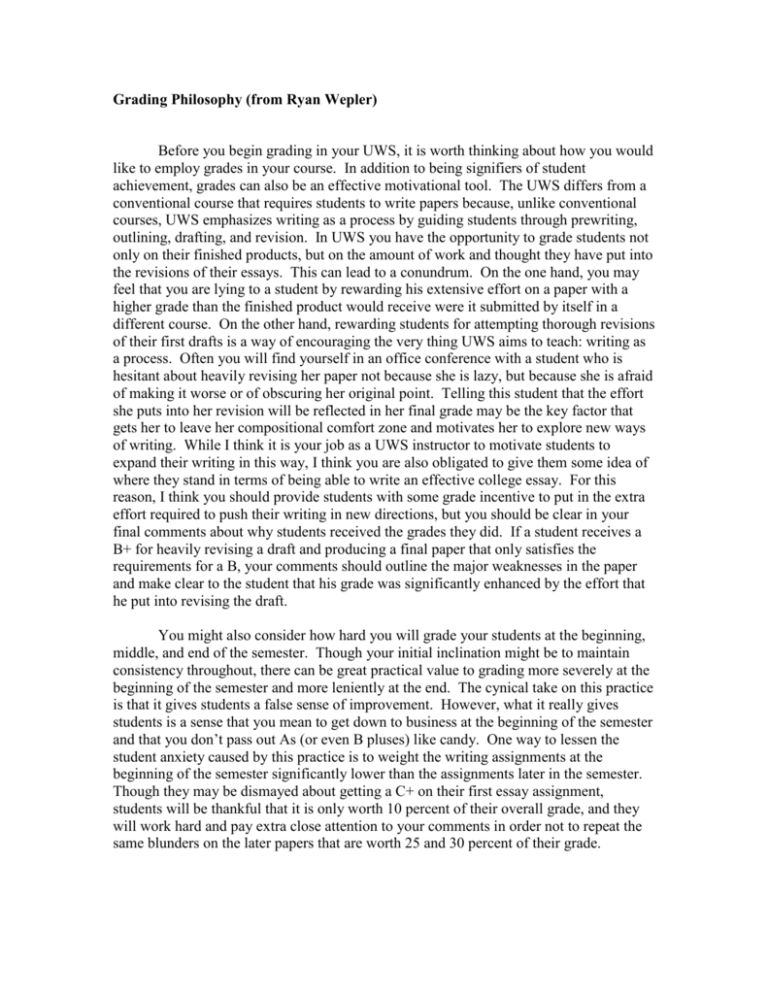
Grading Philosophy (from Ryan Wepler) Before you begin grading in your UWS, it is worth thinking about how you would like to employ grades in your course. In addition to being signifiers of student achievement, grades can also be an effective motivational tool. The UWS differs from a conventional course that requires students to write papers because, unlike conventional courses, UWS emphasizes writing as a process by guiding students through prewriting, outlining, drafting, and revision. In UWS you have the opportunity to grade students not only on their finished products, but on the amount of work and thought they have put into the revisions of their essays. This can lead to a conundrum. On the one hand, you may feel that you are lying to a student by rewarding his extensive effort on a paper with a higher grade than the finished product would receive were it submitted by itself in a different course. On the other hand, rewarding students for attempting thorough revisions of their first drafts is a way of encouraging the very thing UWS aims to teach: writing as a process. Often you will find yourself in an office conference with a student who is hesitant about heavily revising her paper not because she is lazy, but because she is afraid of making it worse or of obscuring her original point. Telling this student that the effort she puts into her revision will be reflected in her final grade may be the key factor that gets her to leave her compositional comfort zone and motivates her to explore new ways of writing. While I think it is your job as a UWS instructor to motivate students to expand their writing in this way, I think you are also obligated to give them some idea of where they stand in terms of being able to write an effective college essay. For this reason, I think you should provide students with some grade incentive to put in the extra effort required to push their writing in new directions, but you should be clear in your final comments about why students received the grades they did. If a student receives a B+ for heavily revising a draft and producing a final paper that only satisfies the requirements for a B, your comments should outline the major weaknesses in the paper and make clear to the student that his grade was significantly enhanced by the effort that he put into revising the draft. You might also consider how hard you will grade your students at the beginning, middle, and end of the semester. Though your initial inclination might be to maintain consistency throughout, there can be great practical value to grading more severely at the beginning of the semester and more leniently at the end. The cynical take on this practice is that it gives students a false sense of improvement. However, what it really gives students is a sense that you mean to get down to business at the beginning of the semester and that you don’t pass out As (or even B pluses) like candy. One way to lessen the student anxiety caused by this practice is to weight the writing assignments at the beginning of the semester significantly lower than the assignments later in the semester. Though they may be dismayed about getting a C+ on their first essay assignment, students will be thankful that it is only worth 10 percent of their overall grade, and they will work hard and pay extra close attention to your comments in order not to repeat the same blunders on the later papers that are worth 25 and 30 percent of their grade.

